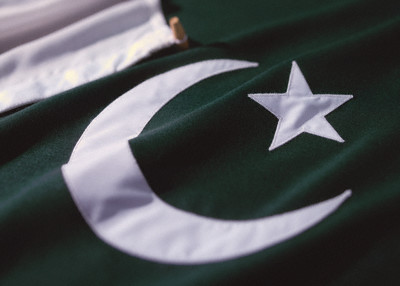Pakistan ‘Double Game’ Reaches New Low
 Michael Hughes
Michael Hughes
February 28, 2016
Just as the spirit of rapprochement between Kabul and Islamabad is in the air on the eve of talks with the insurgency, it appears Pakistan’s military chieftains have sunk to a new nadir amid reports they are supporting Daesh, otherwise known as the Islamic State, the sworn enemy of the Taliban and Al Qaeda. Meanwhile, Washington persists on operating with blinders when it comes to its wayward ally in the war on terror, continuing to fund and weaponize Islamabad despite the odd couple’s divergent interests.
In fact, the Pakistanis are even playing a double game on their Taliban proxies, which isn’t too shocking considering Islamabad always treated them as strategic pawns rather than true partners. TOLONews reported on Wednesday that ten Daesh fighters surrendered their arms and “joined the peace process,” claiming they were financed, equipped and trained by Pakistan’s military.
The Daesh defectors also said they had provided “daily reports” to Islamabad and were encouraged by the Pakistan military to fight Afghan government forces, according to South Asia Newsline.
“They asked us to fight and kill members of the Afghan National Army, tribal elders, and those who have influence in the community,” one of the fighters told Voice of America. Interestingly, the fighters also told VOA they joined ISIS because they were lured by money, not ideology – and one can surely guess who was likely funding their salaries.
Daesh’s “Khorasan province” straddling Afghanistan and Pakistan, the Long War Journal claims, promoted another one of its camps in a video posted earlier this week on ISIS-associated social media sites, reportedly showcasing the “Abu Bakr al Siddiq Battalion” conducting training exercises.
Right on cue, Pakistani officials are saying they are worried about the growing appeal of the terrorist group amid recent attacks claimed by ISIS, albeit it is a familiar tune. Pakistan has long suffered from its self-defeating use of extremist groups as national security weapons, yet continue to see them as strategic assets in controlling Afghanistan and keeping India in check.
Unnamed Pakistani officials supposedly said they fear Pakistan’s long history of extremism could provide fertile ground for the emergent terrorist franchise, especially given the “entrenched Sunni groups whose hatred of minority Shiite Muslims mirrors that of Islamic State.”
Expect to see Pakistan go through the motions for public relations purposes of launching offensives on ISIS redoubts and arresting a few fighters here and there. Pakistan’s military will stop short of daring to eradicate them entirely, however, protecting enough assets to promote Islamabad’s agenda, not unlike the excursions against the “bad” Pakistani Taliban that conveniently left the operations of the Haqqani Network – i.e., the “good” Taliban – largely undisturbed and intact.
Secretary of State John Kerry continued to cover for Islamabad this week when pressed during congressional hearings by Senator Bob Corker, who was concerned about selling eight F-16 fighter jets to the Pakistanis because they “continue to support the Taliban, the Haqqani network, and give safe haven to Al Qaeda.” Congressman Elliott Engel also expressed his doubts about Pakistan’s intentions: “I’m concerned that Pakistan continues to play a double game, fighting terrorism that has a direct impact inside the country, and supporting it in places like India and Afghanistan where it believes such a policy furthers its national interests.”
Kerry’s response: “I understand your reservations about it but their [Pakistan’s] military has been deeply engaged in the fight against terrorism.” Indeed.
Emboldening Islamabad is its budding relationship with Beijing, which Pakistan can leverage against the United States. Pakistan’s recent conciliatory overtures to Kabul and efforts to bring peace to the region are the result of Chinese influence – not American sway. Former Indian diplomat M K Bhadrakumar attested to this reality a few months ago: “In geopolitical terms, make no mistake, the present Afghan-Pakistan rapprochement is principally because of the combined pressure by Washington and Beijing on their respective clients.”
China’s investment in Pakistan’s infrastructure and energy sector seems to outweigh the military aid coming from the Pentagon, so if Pakistan is to ease up on its support for Daesh, one needs to look to Beijing for the requisite pressure. Hence, by the day, Pakistan is expanding its bargaining position and is more likely to pursue its “multi-track” diplomacy, so to speak, with little downside as it actually seems to get rewarded for its double-dealing. For all their transgressions, the Pakistanis are getting American jets, Chinese power plants and is on the verge of gaining newfound influence in Kabul.
In short, Afghanistan needs to understand the reality that Pakistan is unlikely to abandon its interests as the end game draws closer, especially considering it is soon to realize its long ambition of brokering a deal that will empower the Taliban. Then again, perhaps the Taliban should also watch their back should they fail to do Islamabad’s bidding, because it looks like there’s a new player in town.
